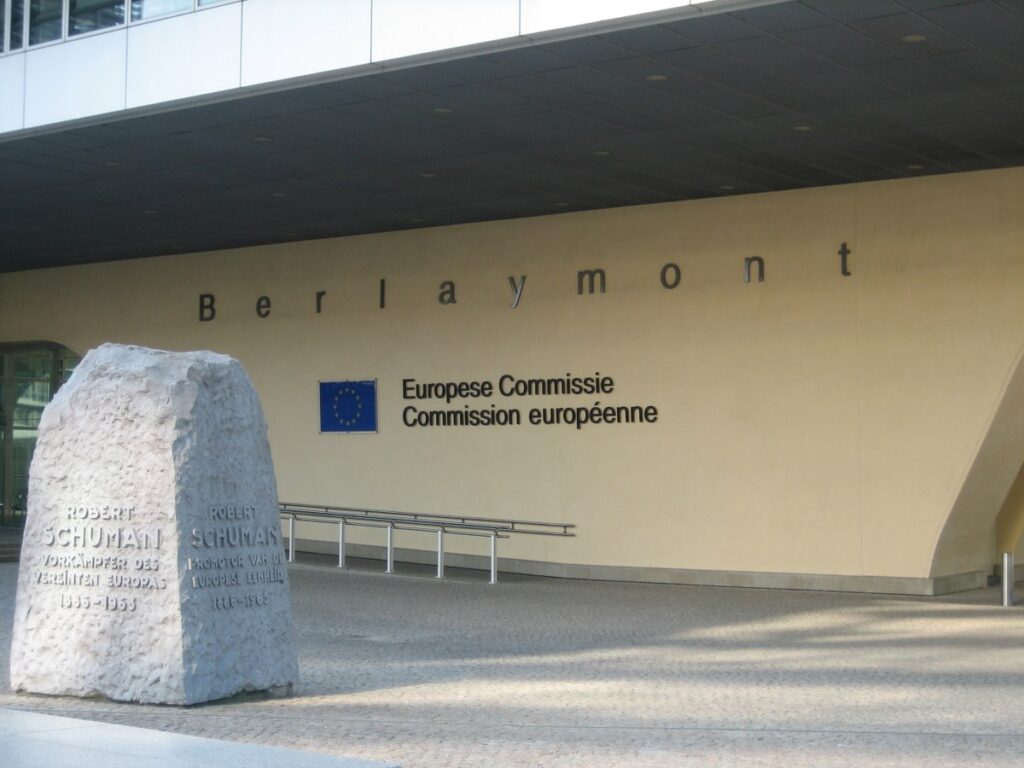- The Supreme Court has referred a question to the Court of Justice of the European Union for a preliminary ruling on whether EU law precludes judges who are members of the National Council of the Judiciary from being elected by the Sejm.
- In the proceedings before the CJEU, the European Commission expressed the view that European law does not preclude this.
- In light of the above position, the question must be asked: what is the basis for the narrative that judges appointed on the basis of the current National Council of the Judiciary’s proposals would not be fully-fledged judges?
In October 2022, the Supreme Court received a cassation appeal lodged by the Capital City of Warsaw in relation to a dispute between the city and the Commission for the Reprivatisation of Warsaw Real Estate concerning an entry in the land and mortgage register of a certain property. However, it is not the content of this appeal or the subject matter of the dispute that is important, but the circumstances surrounding its examination. Judge Mariusz Łodko, who has been a member of the Supreme Court since May 2020, was appointed to hear the cassation appeal. One of the participants in the proceedings, using the procedure specified in Article 29 § 5 of the Act on the Supreme Court, requested that the judge be examined for compliance with the requirements of independence and impartiality, taking into account the circumstances surrounding his appointment and his conduct after his appointment, and requested that the judge be excluded from hearing the case. As the only circumstance justifying the above request, the applicant pointed out that the judge was appointed to the position of Supreme Court judge on the basis of a proposal by the National Council of the Judiciary acting in accordance with the rules in force since 2018. (i.e. whose members who are judges referred to in Article 187(1)(2) of the Constitution were elected by the Sejm in accordance with Article 9a of the Act on the National Council of the Judiciary).
In connection with the above request, on 17 October 2024, the Supreme Court issued a decision to refer the matter to the Court of Justice of the European Union for a preliminary ruling, i.e. for an answer to questions concerning the interpretation of EU law relevant to the resolution of the dispute. Of the questions referred to the CJEU, the most important was the first one:
Does Article 19(1), second paragraph, TEU, read in conjunction with Articles 2 and 4( 2 TEU, interpreted in the light of Article 47 of the Charter of Fundamental Rights of the European Union, preclude national legislation which changes the existing method of selecting members of the judicial council in a Member State by introducing democratic legitimacy for the judicial part of that council?
Of the provisions of EU law cited, the most relevant is Article 47 of the Charter of Fundamental Rights, which establishes the EU right to a court:
Everyone whose rights and freedoms guaranteed by the law of the Union are violated has the right to an effective remedy before a tribunal in accordance with the conditions provided for in this Article. Everyone has the right to a fair and public hearing within a reasonable time by an independent and impartial tribunal previously established by law. Everyone has the right to legal advice, to have a defence lawyer and to be represented. […]
It is primarily on the basis of this provision that the CJEU issued its highly controversial rulings questioning the current system of the Polish judiciary. However, these rulings raise doubts as to whether they were issued in excess of the powers of the CJEU.
Meanwhile, in the case in question, the EU authorities took a completely different position. According to information made available yesterday (17 July 2025) in a statement posted on the website of the Supreme Court, in the course of proceedings before the CJEU, the European Commission expressed the following opinion:
Article 19(1), second paragraph, TEU, read in conjunction with Article 2 TEU and Article 47 of the Charter of Fundamental Rights, must be interpreted as meaning that, in so far as the procedures for the appointment of judges in a Member State provide sufficient guarantees to exclude any reasonable doubt as to the independence and impartiality of the judges appointed, do not preclude, in principle, national legislation providing that the judges who are members of a national body which plays a decisive role in the procedure for appointing judges, such as the National Council of the Judiciary, are elected by the national parliament.
After the European Commission presented the above position, the Supreme Court found that there were no further doubts in the case that would require a response from the CJEU, and therefore, on 27 March 2025, it decided to withdraw its request for a preliminary ruling. This, in turn, led the President of the CJEU to decide on 30 April 2025 to remove the case from the Court’s register.
Returning to the request for an examination of the independence of the judge who initiated the proceedings before the CJEU, in light of the position expressed by the European Commission in the course of those proceedings, on 9 July 2025, the Supreme Court rejected the request without calling for the formal deficiencies to be remedied, in accordance with Article 29 § 10 of the Supreme Court Act. The reason for this decision was that the request did not meet the requirements referred to in § 9 of that article, i.e. it did not set out the circumstances justifying the request, together with evidence in support thereof.
It should be added here that this is not the first time that EU authorities have acknowledged that the mere fact of choosing a body that plays a key role in the appointment of judges on the basis of democratic legitimacy is not contrary to any requirements of EU law.
A very similar position was presented on 29 April 2025 by Advocate General Dean Spielmann in his opinion in case C‑521/21. He stated, among other things, that:
I therefore consider that, in the context of the present case, the mere fact that a judge of a body such as the KRS participated in the appointment procedure is not sufficient to raise doubts as to the independence of the judges appointed in this way.
The above facts once again raise the question:
Since neither European Union law nor, a fortiori, the Polish Constitution (as clearly and definitively stated by the Constitutional Tribunal in its judgment of 25 March 2019) require that judges who are members of the KRS be elected from among themselves in a corporate manner (or, to put it more bluntly – oligarchic), what is the basis for the narrative about the ‘neo-KRS’ and the resulting narrative about ‘neo-judges’?
This narrative, whose manifestations undermine respect for the judiciary, democratic institutions and processes, and significantly lower the level of public debate in Poland, have been very clearly visible in recent weeks in connection with Minister Bodnar’s questioning of the status of the Extraordinary Review and Public Affairs Chamber of the Supreme Court in the context of ruling on the validity of the presidential elections. Just yesterday, Minister Bodnar sent a letter to Marshal Szymon Hołownia in which, without saying so explicitly (presumably for fear of legal consequences), once again unambiguously suggested that the Marshal should not convene the National Assembly and thus prevent Karol Nawrocki from being sworn in as President of the Republic of Poland.
Of course, it cannot be ruled out that the current position of the European Commission is related to the recent statements by Minister Bodnar, according to which, if the law on the National Council of the Judiciary is not amended, the current Sejm majority will appoint new judgesmembers of the National Council of the Judiciary on the basis of the current provisions, which it recently considered unconstitutional and contrary to international treaties binding on Poland. However, even if such self-serving political motives were behind a possible change in the ruling majority’s position, renouncing unlawful actions that undermine the justice system, undermine Poland’s constitutional sovereignty, or expose citizens to lengthy court proceedings in which they are involved would still be a change for the better. As a first step, the government could, for example, abandon the practice of adding unfounded annotations to court rulings.
Image source: Wikipedia.



